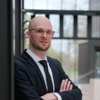Fritextsökning
Artiklar per år
Innehållstyper
-

New findings on the diseases that crushed Napoleon’s army
As if cold, starvation, and typhus weren’t enough. New research reveals that Napoleon’s defeated army also suffered from paratyphoid fever and relapsing fever during the retreat from Russia.
-

A cluster contribution to European life science innovation and competitiveness?
-

How the Nobel discovery is used in drug development
Regulatory T cells keep the immune system in check, a discovery now awarded the 2025 Nobel Prize in Physiology or Medicine. Qiang Pan Hammarström explains how this finding is being applied in today’s drug development, and what challenges remain.
-

Många avbryter behandling med fetmaläkemedel – ny studie pekar ut orsakerna
I en ny studie kartläggs de vanligaste orsakerna till att patienter väljer att sluta med läkemedel mot obesitas i förtid. ”Hälsofördelar går förlorade när behandlingen avbryts”, säger Hamlet Gasoyan, en av forskarna bakom den nya studien, till Life Science Sweden.
-

Sarah Lidé: ”Artificial intelligence must not replace authentic interactions”
Artificial intelligence must never become a replacement for authentic, even if messy, interactions with our fellow humankind, Sarah Lifé, Deputy CEO at Medicon Village Innovation, writes in a column.
-

Sobi går om Roche i ny patientrankning
Roche tappar förstaplatsen i Patientviews årliga rankning över läkemedelsföretagens anseende bland patientorganisationer inom sällsynta sjukdomar. Nykomlingen Sobi tar över ledningen i bolagets första medverkan i undersökningen.
-

Cleveland Clinic: Kirurgi gav fler långsiktiga fördelar än GLP-1-läkemedel
Metabol kirurgi minskade riskerna för död, hjärtsjukdom, njursvikt och ögonskador mer än GLP-1-läkemedel under en tioårsperiod. Det enligt en ny studie från Cleveland Clinic i USA.
-

Heart Monitoring in Breast Cancer – Essential or Excessive?
Trastuzumab and related drugs have transformed breast cancer treatment and dramatically improved survival rates. But the close cardiac monitoring required during treatment can be a heavy burden for both patients and healthcare systems. Dr. Andri Papakonstantinou is working to refine how doctors identify which patients truly need intensive follow-up.
-

3 000 ska bort från Australiens största läkemedelsbolag
Det australiensiska läkemedelsjätten CSL genomför sparåtgärder. I planen ingår bland annat att knoppa av bolagets vaccinenhet och minska arbetsstyrkan med 3 000 medarbetare.
-

BMS and venture capital giant form new company
The American pharmaceutical company Bristol Myers Squibb, together with the venture capital firm Bain Capital, is forming a new biotech company. The company will develop treatments for autoimmune diseases where there is currently a lack of effective therapies.
-

Astra Zenecas Imfinzi rekommenderas för godkännande vid blåscancer
Läkemedelsbolaget Astra Zenecas läkemedel Imfinzi har rekommenderats för godkännande i EU som den första och enda perioperativa immunterapin för vuxna med muskelinvasiv blåscancer.
-

The scientist behind Novo Nordisk's obesity success: “I never stopped believing in GLP-1”
It took several years of failures in GLP-1 before Lotte Bjerre Knudsen and her colleagues found the right path – but when they did, it was a true breakthrough. "We invested for 25 years while everyone else laughed at us. Now everyone wants to join the game," says Lotte Bjerre Knudsen, Chief Scientific Advisor at Novo Nordisk.
-

Trump in new push to lower drug prices
U.S. President Donald Trump announced on Sunday that he plans to sign an executive order to lower the cost of prescription drugs to the same levels paid in other wealthy countries — something he claims could reduce prices by 30 to 80 percent.
-

Svensk läkemedelsdoldis ny på lista över dollarmiljardärer
Doldisen Per Sandberg, storägare i läkemedelsbolaget Camurus, hör till en av världens mest förmögna personer. Bland de namn som hängt med från tidigare års listor återfinns även flera andra profiler från den svenska life science-sektorn.
-

Mikael Kubista back with new venture after turbulent exit
Entrepreneur and researcher Mikael Kubista is starting a new company. Now he is also free to comment on the sequence of events that led to him losing ownership of his life's work – the company Tataa Biocenter. “Not only did they take our company away from us. They followed up by showering us with lawsuits,” he says.
-

From pharmacist to life science podcaster – Magnus Lejelöv uses his voice as a tool
Magnus Lejelöv has more than 20 years of experience in the pharmaceutical industry and has conducted nearly two hundred interviews with healthcare professionals on his podcasts.
-

Korbinian Löbmann leads scientific meeting on drug formulation: High activity in the field
Korbinian Löbmann has moderated New Updates in Drug Formulation & Bioavailability several times before. Now he is once again taking on the scientific meeting. Life Science Sweden reached out to him.
-

Studie stärker kopplingen mellan graviditetsdiabetes och autism
Barn till mödrar med graviditetsdiabetes löper en större risk att diagnostiseras med neuropsykiatriska funktionsnedsättningar, jämfört med barn vars mödrar inte har diabetes, enligt en stor metastudie.
-

An organ seldom in the spotlight – but utterly vital
The kidneys consist of more than 40 types of cells and have more functions in the body than most people know. Julie Williams leads AstraZeneca’s work in preclinical research about kidney diseases. “They are probably one of the most complicated organs in the body, and I like a challenge”, she says.
-

Aqilion's licensing journey: From Merck partnership to new opportunities
Be extremely meticulous with your scientific data, but spend just as much time and effort on business development. That piece of advice comes from Aqilion's CEO Sarah Fredriksson and is directed at biotech companies aiming to find a good licensing partner.
-

A tiny animal with great importance
From the mythical Ganges River to the less sacred, but considerably cleaner waters in KI's aquariums in Solna. The little zebrafish has made an unconscious career – as an increasingly important model organism in medical research.
-

Who pays for Rebecca Doe – and all of us?
Anna Törner on how easily we get used to the idea that healthcare is free - when it really is about how and who pays for it
-

The art of successful licensing – “A lot has to align”
Sharp research, strong data and a high level of innovation are all very good, but more than that is required to achieve the goal of many biotechnology companies: to succeed with a licensing deal.
-

Ukraine war fuels rise of totally resistent bacteria
War-torn Ukraine is not just suffering from hostile attacks from a foreign aggressor, but also from the threat of a totally resistant and contagious bacteria.